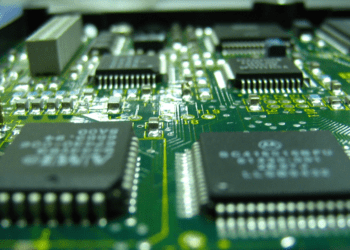The South Korean national assembly passed the K-Chip bill on Thursday. With the chip bill in motion, the nation’s tech industries, particularly the semiconductor industry will get consolation from the government side.
The Korea chip bill will transform the existing tax credit structure. After the implementation of new regulations, the big corporations involved in manufacturing will be liable to a 15 percent tax credit instead of the previous 8 percent. For medium to small-scale firms, their tax credit will be no more than 16 percent instead it’s going to be 25 percent.
Other than tax credits, the companies will be eligible for a 10 percent cut depending on the investment size and comparative analysis with three previous years’ averages. The credit of major and small corporations will rise to 25 percent and 35 percent respectively under the chip bill clauses.
The definitive verdict on the Korea chip act is impending in April. At the current point, the government is looking for extra strategic technologies for the future. The authorities have correspondingly set eyes on potential commercialization facilities best for the tax credit.
South Korea’s massive economic output is shaped by its advancing and thriving tech sector. The plurality of exports of the fourth largest Asian economy is dependent on its supply of chips all around the globe. In 2022, the country exported $128 billion worth of chips and contributed about 20 percent to the global market share.
However, in the last couple of months, the exports have seen a drop. The demand for chips plunged by almost 45 percent in March this year due to ongoing worldwide economic turmoil. Things are still uncertain in the spectrum of the supply chain.
Not only is there a slowdown but Korea’s chip and tech manufacturers are also getting pressure from the US leadership via its 2022 Chips and Science Act.
The South Korean government aspires to uplift its dropped-down industry since the chip sector is one of the most essential components of the country. The new chip bill has been deployed with the purpose to alleviate those engaged in chip production, supply, secondary battery companies, next-generation cars, taxis as well as strategy-based businesses.
Given the economic value of chips, the Korean chip bill was overall backed massively in the parliament with 179 lawmakers in support. Whereas, in ballot voting, 13 lawmakers were in opposition, 40 in forfeit state and 70 didn’t put up with the ballot process. The government has also drawn out a huge budget i.e. $422 billion for chips as well as many similar interconnected sectors’ growth and development.
It is expected that the chip bill will bring forth more domestic investments for tech partners like Samsung Electronics and SK Hynix, two prominent chip companies within South Korea and outside.
The K-Chip bill was awaited for a very long time. Some transitions are expected in the chip industry since the chip bill is finally in action. However, the chip bill was much needed by South Korea in fulfilling its pursuit to secure a global hegemony over the global semiconductor market overtaking China and Taiwan.






